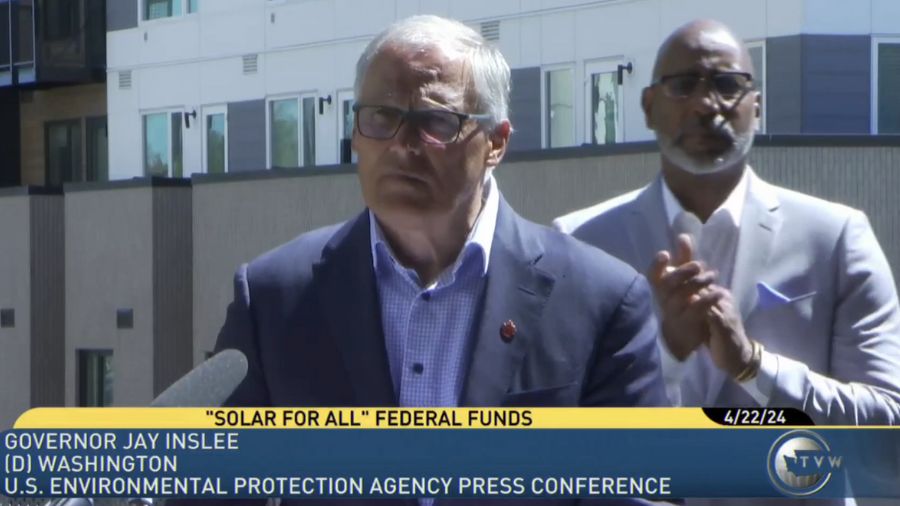Whale watch operators defend practices after NOAA study reveals impact of vessels
Jun 30, 2014, 12:02 PM | Updated: 12:08 pm

Whale watch operators are defending their practices following the release of a study by the National Oceanic and Atmospheric Administration that discusses vessel impact on whales. (AP Photo/file)
(AP Photo/file)
Whale watch operators are defending their practices following the release of a study by the National Oceanic and Atmospheric Administration that looked at vessel impact on whales.
After 10 years of research, NOAA has identified a few key factors that might be affecting the endangered Southern Resident Orca population. The first factor identified was the health of Chinook salmon populations. The salmon are the preferred food of these orcas and if they are low, it can cause problems. Second, the study says pollution can cause disease and reproductive issues for killer whales. The third factor is the impact of vessels on the whales. The study says when vessels are near, the orcas hunt less and communicate louder.
Howard Garrett, with the Orca Network on Whidbey Island, tells KIRO Radio’s Jason Rantz Show that noise from boat engines can interfere with orcas.
“Orcas and all whales live primarily by sound. That’s how they get around, that’s how they perceive their environment, find their food, keep in touch with each other, it’s all by sound as much as we depend on sight.”
What does that mean then for whale watching vessels?
Michael Harris, of the Pacific Whale Watch Network, says they are very mindful of protecting the whales and he doesn’t believe they are causing harm.
“We don’t impact the whales. There’s not a single bit of science that tells us we are impacting the whales by following the guidelines and doing what we do.”
Harris says their network initiated guidelines to work safely around the orcas even before they were required to do so.
“We have 33 members now of the Pacific Whale Watch Association and we did write the guidelines, and we did create the blueprints for the regulations that are in place, and we’ve been out in front long before we were mandated by law,” says Harris. “We were the ones who came up with the 100-yard perimeter […] We pushed that out to 200 yards before it became law.”
Harris says they’re typically farther than 200 yards from the killer whales and they keep out of their path. Whale watching boat operators are trained to mitigate the affect they have on the whales, he says, suggesting the problems come with boaters who are not educated on these matters.
“Oftentimes, we blur the lines between the tour boats, the commercial operators who have an accountability, who are trained to operate and do it in a way that doesn’t impact the whales, versus recreational boaters who make up a vast majority of the violations out there.”
He says recreational boaters are well-meaning, but if they’re not educated in how to approach the whales properly, that is where the problems arise. Harris says the best place to see whales is on one of the Pacific Whale Watch Association boats with an educated operator.
Garrett thinks whale watching can be done in a way that doesn’t harm the whales, and he says it can even be a good thing for whales as long as whale watching boat operators are considerate.
“People gain a whole new appreciation of the whales and a dedication to helping them. I think the positives can definitely outweigh the negatives.”
The community of whale watching operators wants to help solve the problem, says Harris. But he thinks they have to really focus on what will make the biggest difference, which he thinks is creating a healthy Chinook population.
“No fish, no black fish […] meaning no salmon, no orcas. That is the problem,” says Harris. “If we don’t start recovering salmon runs here, and if NOAA doesn’t step up and start fixing the salmon problems, not studying it, but fixing it, and not going after the low-hanging fruit, which is the whale watch boat, which is building these constituencies for conservation, we’re going to be in trouble. The orcas are going to be in trouble. We need to work together on this one.”














